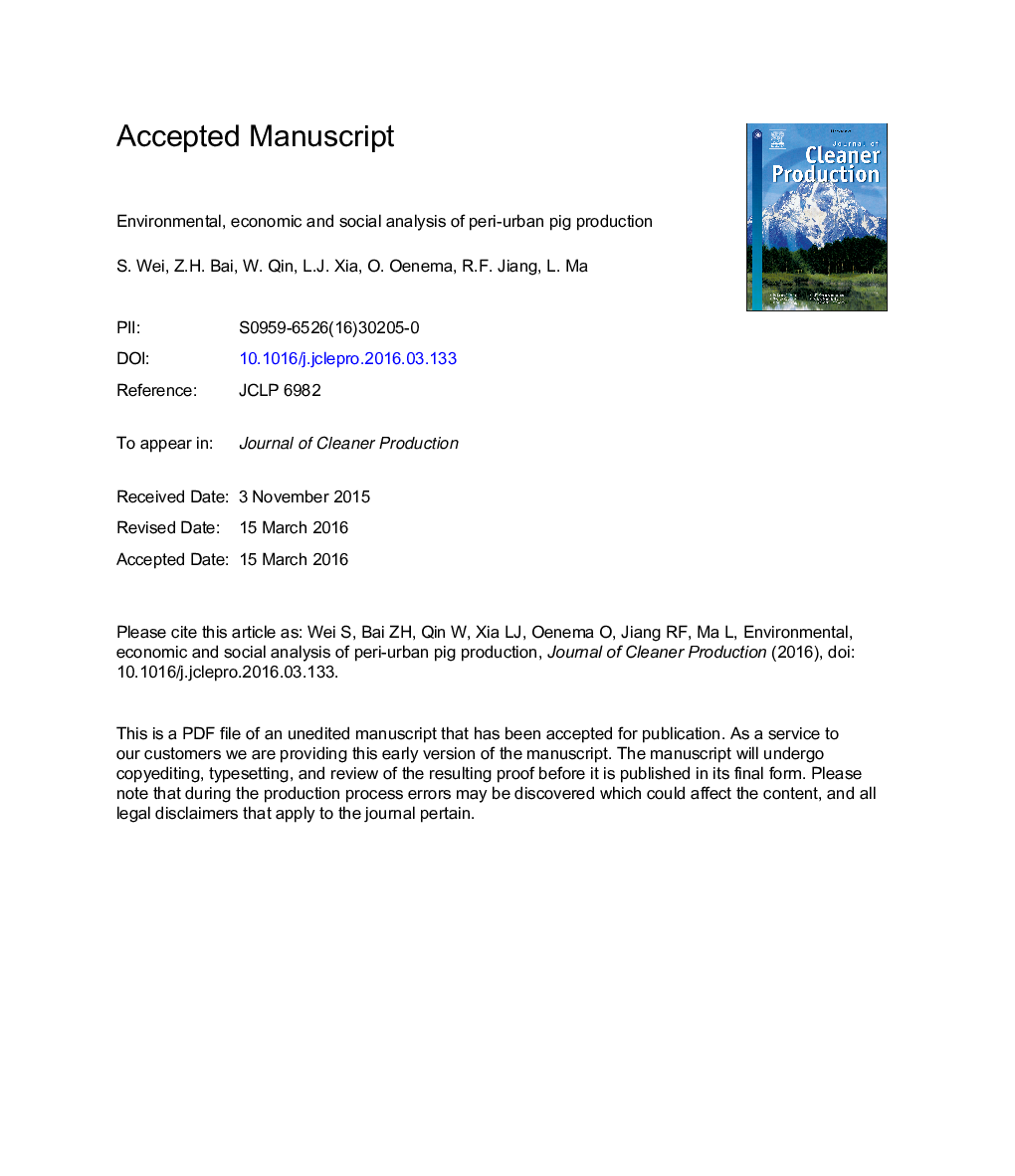| Article ID | Journal | Published Year | Pages | File Type |
|---|---|---|---|---|
| 8102004 | Journal of Cleaner Production | 2016 | 39 Pages |
Abstract
Intensive livestock production expands rapidly around cities to meet the food demand and the improvement of people's living standard in developing countries, such as China. However, little is known about the environmental costs and socio-economic performances of these systems. Here, the performance of peri-urban pig farms in Beijing was assessed, using data of a comprehensive survey conducted on 92 pig farms during 2012-2013 and calculations with the Nutrient flows in Food chains, Environment and Resources model. 13 indicators related to environmental, economic, and social aspects were selected for this assessment. This is an important study unravelling the complexity and dynamics of the pig production system in peri-urban area. Results show that larger farms performed better than smaller farms, mainly because large farms had lower feed cost and better manure management. Nitrogen and phosphorus surplus were negatively related to farm size and farm income positively, when expressed per unit of pork produced. Nitrogen and phosphorus use efficiency at animal level ranged from 21 to 26% and 28-34%, respectively. Meanwhile, the rate of nutrient surplus was from 48 to 75 g nitrogen (kg pork)â1 for nitrogen and 4-9 g phosphorus (kg pork)â1 for phosphorus the four farm size classes. Farm income ranged from â0.02 to 3.1 yuan per kg pork. Results also indicated that recycling of manure for crop production was a proper way to lower nutrient surpluses and environmental costs in livestock production system. The selection of indicators had great significance to the performance of the farm in terms of different purposes and needs more in-depth and comprehensive research. In conclusion, the environmental, economic and social performance of the farms was positively related to farm size. There are significant opportunities for improving the performance of pig production systems in Beijing through animal feeding (lower feed conversion and crude protein) and improving manure recycling, through a further integration of crop and animal farms. Insights from pig production systems in peri-urban region of Beijing provide relevant guidance to the sustainable livestock production in cities of rapidly developing countries.
Related Topics
Physical Sciences and Engineering
Energy
Renewable Energy, Sustainability and the Environment
Authors
S. Wei, Z.H. Bai, W. Qin, L.J. Xia, O. Oenema, R.F. Jiang, L. Ma,
